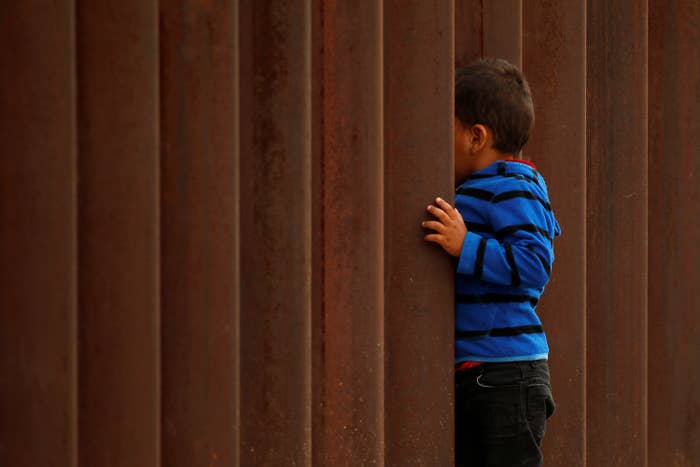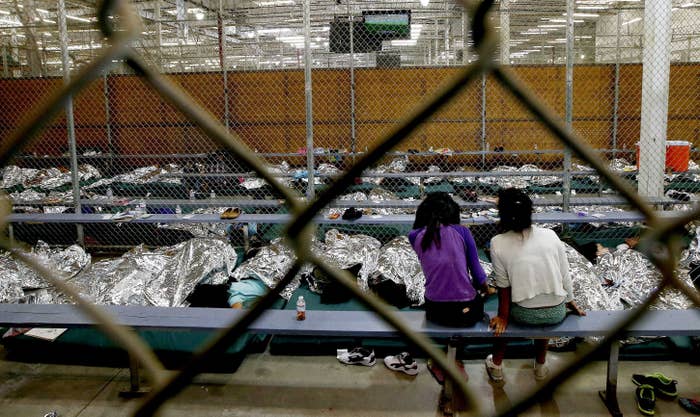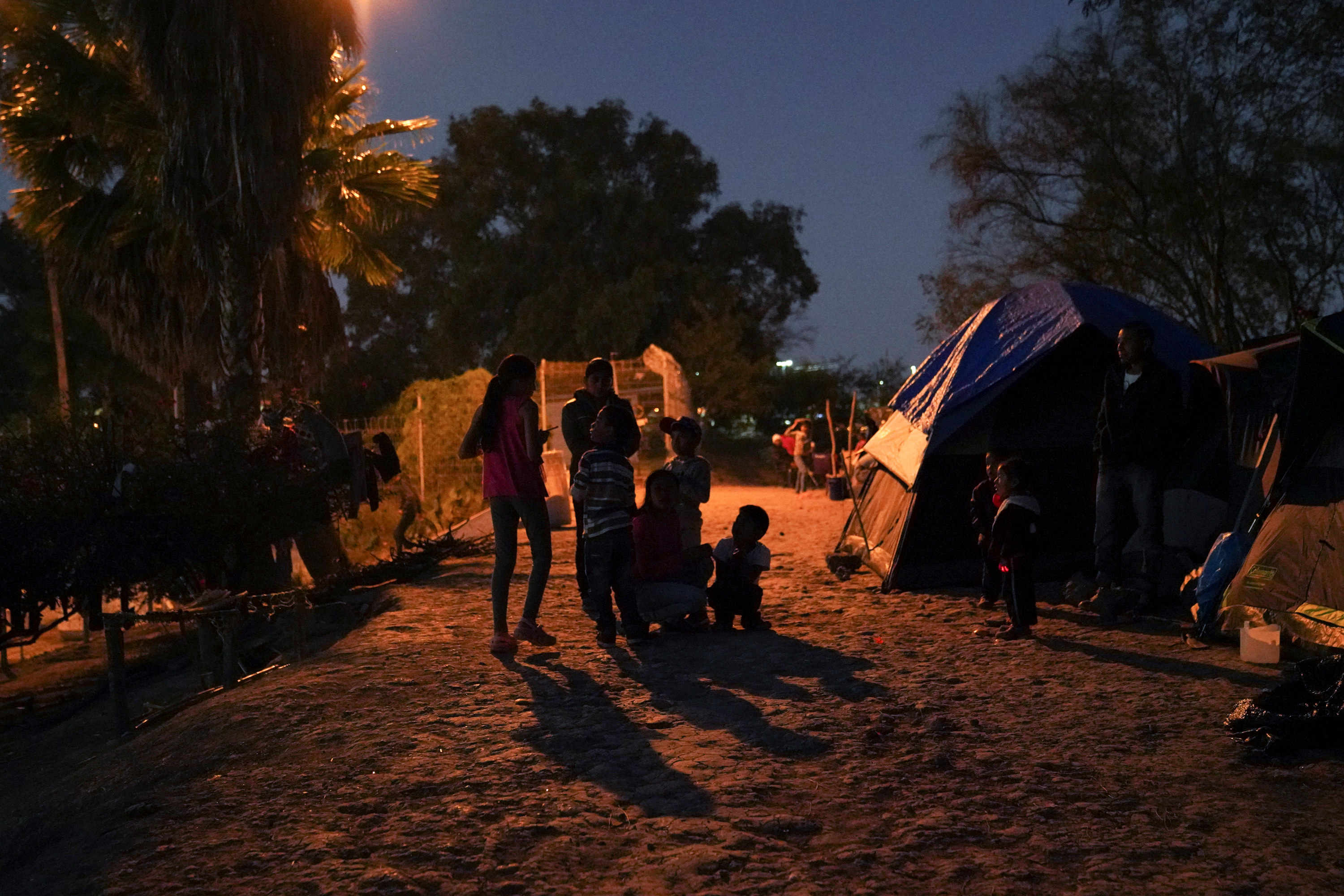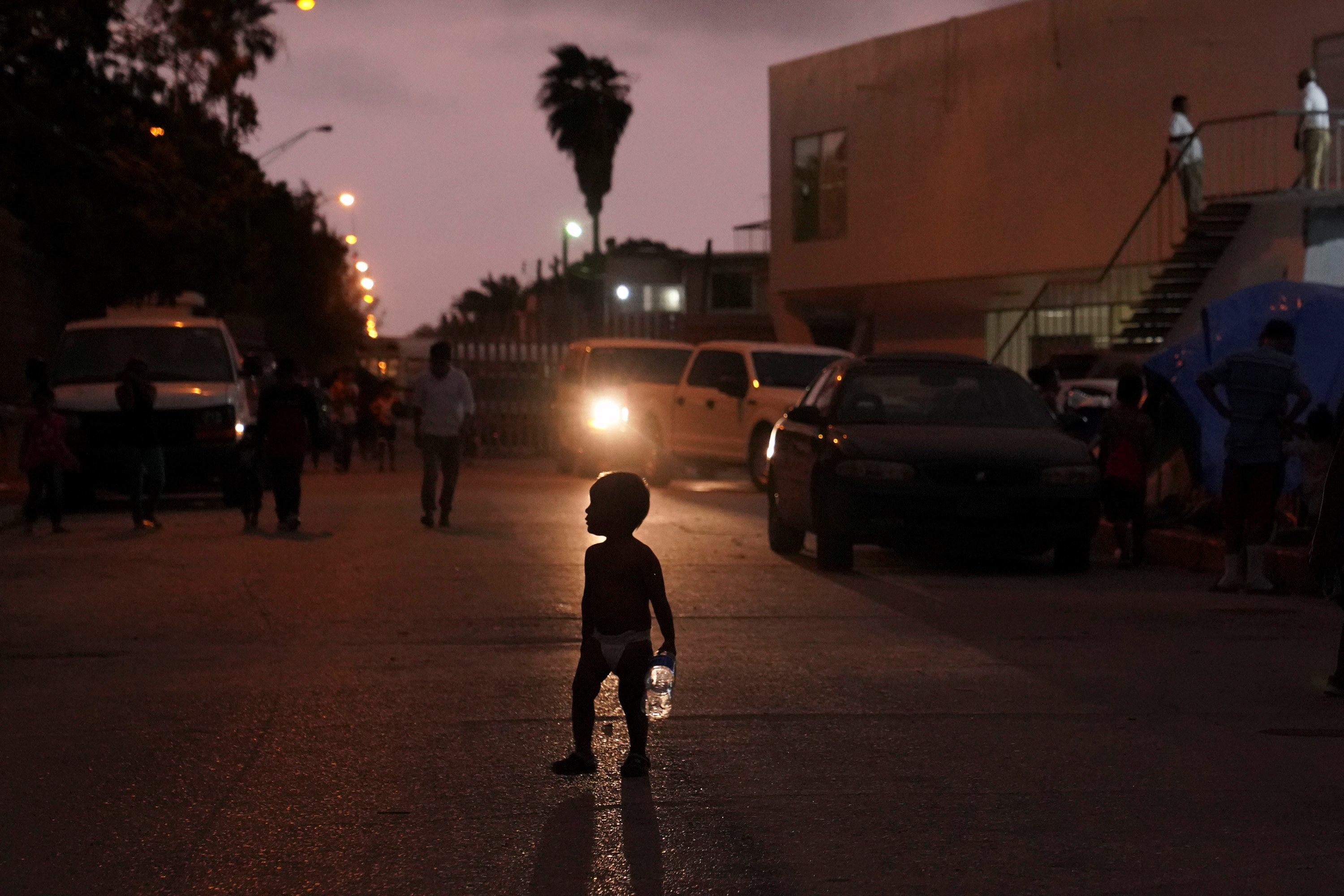
In early March, two sisters, ages 8 and 10, walked across a busy international bridge and presented themselves to US border officers in Texas.
Usually, unaccompanied minors are sent from the southern border to a shelter while sponsors, such as a parent already in the US, are vetted. The children are then released to the sponsor with a future immigration court date.
In the case of the two sisters, however, US Immigration and Customs Enforcement is trying to quickly deport the girls to El Salvador, where they have no close family. Because the girls and their father had previously lost their asylum case while waiting in Mexico, the result of a Trump administration policy affecting thousands of immigrants, ICE said the girls already had their day in court and should be deported.
“When the minor’s case before the immigration court is complete and the minor has a final order of removal, ICE proceeds with the removal process,” ICE said in a statement to BuzzFeed News.
Instead of removal, attorneys for the girls, who declined to be identified due to privacy concerns, say they should be treated just like any other unaccompanied immigrant children: placed in new immigration proceedings and have their cases reviewed by a judge independent of their father’s previous asylum claim.
Unaccompanied minors in this situation may have a better independent claim to enter the US than with a parent, a person familiar with their case said. Their mother, who lives in the US, had been in the process to sponsor them until she was told the girls were set to be deported.

They are not the first unaccompanied children the US government has tried to deport in recent weeks after finding they’d lost a previous immigration case.
In April, ICE deported an unaccompanied 16-year-old girl to Honduras, where she had fled threats of violence because she reported her father to authorities for sexual assault. Advocates around the country said there are numerous children in the same situation facing deportation, and a federal judge recently identified at least four similar cases.
Unaccompanied minors are afforded benefits that children traveling with parents or legal guardians are not under the Trafficking Victims Protection Reauthorization Act, which establishes care, release, and due process rights for them. Advocates say the TVPRA requires the government to put these children in new proceedings. The law also gives unaccompanied children access to legal counsel while in government custody and the ability to make an asylum claim to a US Citizenship and Immigration Services officer instead of a judge, which is considered less adversarial. But that’s no longer the case for unaccompanied minors going through the immigration court process under a Trump administration policy enacted January 2019.
The administration’s Migrant Protection Protocols policy has forced more than 60,000 immigrants to wait in some of Mexico’s most dangerous border cities and cross into the US temporarily for hearings before going back to makeshift encampments, shelters, or cramped apartments to await a court decision. Attorneys have criticized the hearings for being held in remote areas with little access to legal aid. Just 1% of immigrants subject to the policy, colloquially known as "Remain in Mexico," who have completed their proceedings have won their cases.

Desperate and hopeless against the odds of winning, parents have started to send their children across the border alone, knowing unaccompanied children could not be sent back to Mexico. That has since changed under a CDC order on the dangers of the coronavirus at the border — which the Trump administration is using to quickly expel unaccompanied minors from the US to Mexico or their home countries, denying the children long-standing protections previously afforded to them. Very few children have since been able to enter US government custody.
The sisters entered the US before the CDC order was issued on March 20, but they haven’t escaped ICE’s efforts to deport them.
In court documents, Jallyn Sualog, deputy director of ORR, said that in instances where a child with a pending "Remain in Mexico" case or deportation order is not likely to be deported from the US, the agency will look into releasing them. In cases where deportation is "imminent" however, ORR will work with ICE to deport them.
In late April, there were at least four unaccompanied minors in ORR custody who had not been released due to a pending MPP case or deportation order stemming from it, but there was no note that their removal was imminent, according to court documents. Legal service providers in court documents also said "numerous" children were in the same situation. Some of them were held for months despite pending appeals of their deportations under MPP.
"Yet these minors' attorneys see no sign of ORR's willingness to evaluate them for release," wrote Judge Dolly Gee, the federal judge overseeing the Flores settlement agreement, which outlines the living conditions of immigrant children in US custody. "The court sees no reason why, if removal is not 'ready to take place,' ORR should not release minors whose removal orders under the MPP are under appeal."
Gee ordered the prompt release of hundreds of other children in ICE and ORR custody as well, noting both agencies had violated the Flores settlement agreement for various reasons.

Their removal “imminent” is wiggle room the government is using to deport children in spite of Gee’s order, attorneys said.
ICE said there were no new policies or practices related to unaccompanied immigrant children who were formerly in MPP. Children previously in MPP encountered alone at the border are classified as unaccompanied and sent to ORR, the agency said. If a child doesn’t have a deportation order from a judge, their case is separated from the existing one they had with their family.
“If the minor was ordered removed from the US by an immigration judge as part of the family unit, prior to being encountered as a [unaccompanied child], then the minor is subject to the final order of removal,” ICE said.
Mark Weber, a spokesperson for the US Department of Health and Human Services, which includes ORR, said it does not play a role in the apprehension or initial detention of unaccompanied children and isn't party to their immigration proceedings.
The two sisters entered the US after the 30 days when they could've appealed their MPP case they had with their father. But attorneys have submitted asylum applications on their behalf, stay of removal, and late-filed notices of appeal to the Board of Immigration Appeals.
Their advocates hope it will be enough to stall and have the girls' cases reviewed once more.
